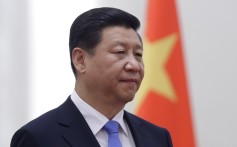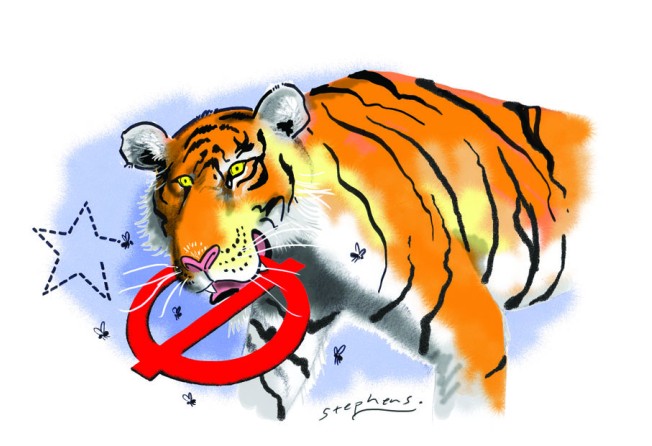
Corruption is a byproduct of Chinese party-state's defective genes
Roderic Broadhurst says corruption in China continues to thrive despite a serious government crackdown because the real cause lies in the fundamental nature of its political structure

At the Chinese Communist Party's 18th National Congress in November last year, outgoing president Hu Jintao warned that corruption could lead to "the collapse of the party and the downfall of the state".
The scale of corruption is significant, with the People's Bank of China reporting that between 1994 and 2008, up to 18,000 corrupt officials fled the country, taking with them an estimated 800 billion yuan (HK$1 trillion) in plundered assets. The costs of domestic public order have also grown rapidly, in part over concerns about corruption and the need for weiwen - "maintaining stability".

As part of his "Chongqing model", Bo launched the "sing red" campaign promoting "red" culture, and the "smash black" campaign cracking down on organised crime. The "strike black" campaign was condemned because it used torture and falsified evidence against political enemies as well as criminals. Furthermore, Bo's charismatic leadership style and his close ties to the People's Liberation Army presented a challenge to China's collective leadership system which discourages "cults" of personality.
The trigger for the scandal was the personal dispute between Bo and his police chief Wang Lijun over the involvement of Bo's wife, Gu Kailai , in the murder of a British businessman. Wang fled to the US consulate in Chengdu but his request for political asylum was denied. The incident led to an investigation of Bo's family and associates, and Bo was removed from his party posts soon after. Wang was later sentenced to 15 years in prison for abuse of power and bribery, among other crimes. A year later, Bo was sentenced to life imprisonment for taking 20 million yuan in bribes, embezzlement of 5 million yuan and abuse of power.
The party leadership depicted the case as a simple criminal matter. The People's Daily editorialised that "the resolute punishment of Bo Xilai according to law has fully shown that there are no exceptions in the face of party discipline and state laws". Yet concerns over the Bo family's financial associations and the full extent of his corruption remain unaddressed.
Bo's trial showed how corrupt officials achieved promotion without fear of investigation. This link between corruption and promotion originates from China's bureaucratic culture. Political factions usually form around senior officials' guanxi or interpersonal networks.
In a guanxi network, members follow the rules of reciprocity and equality. These unspoken rules encourage high-ranking officials to distribute opportunities and promotions among those in their network. Money-power exchanges are normal and even necessary within the network, but fall within the sphere of corruption and nepotism. These unwritten "rules of the game" pose challenges to China's anti-corruption efforts.
Cracking down on corrupt senior officials requires the government to destroy the networks that may shield officials from investigation, complicating the anti-corruption drive. Moreover, the principle of reciprocity and the essence of mianzi (face) in the network result in attempts to divert punishment away from the network. So far, the "tigers" caught in the latest anti-corruption crusade have been Xi's political rivals.
Bo's downfall suggests that politics in China is as contested as ever. The party's factional struggles reflect long-term disputes over how to undertake economic and political reform, and anti-corruption campaigns are vulnerable to manipulation in these power struggles. Bo's case revealed the extent of the corruption among senior officials, and also showed that a centralised approach is needed because local authorities lack the capability to suppress symbiotic and systemic corruption involving elites.
Wen Jiabao criticised Bo's "singing red and smashing black" campaign as evocative of the tragedy of the Cultural Revolution. Ironically, Xi has since relaunched the Maoist model of "rectification" (self-purification, self-improvement, self-innovation and self-awareness) to tackle the evils of the "four winds" (formalism, bureaucracy, hedonism and extravagance). However, the "masses" have reacted with ridicule and cynicism, and cadres with fear of another "anti-rightist" purge.
The question remains: will the current generation of leaders be able to transform China's political institutions and sustain its extraordinary resurgence? Pressing financial reforms foreshadowed in the working report at the third plenum are aimed at reducing the distortions in resource allocation to state-owned enterprises as well as the exposure to high-risk loans in the banking sector. These will be crucial to retaining legitimacy. However, campaigns against corruption and assurances of stability will no longer be enough to ensure the support of the growing middle class.
Xi may have positioned himself as a "tiger-fighting hero" through the purge of Bo, but tigers are dangerous and stability remains the key priority. Much may depend on how well the sixth-ranked Politburo Standing Committee member, Wang Qishan (a finance expert), manages to transform the Central Commission for Discipline Inspection and improve the transparency of its processes and, with it, confidence in the party. The secondment of experienced police investigators to assist the commission in complex cases, such as that of former Politburo member Zhou Yongkang , may presage the strengthening of anti-corruption efforts.
An important step would be to strengthen the independence of the courts and judicial police by reforming the political-legal committees.
Xi's emphasis on the threat of corruption may serve to conceal the real problem, - the failure of the party-state political system to manage an environment increasingly characterised by economic and social interdependence and opening up. Elite corruption is a byproduct of this political system, and anti-corruption acts like a dose of antibiotics that maintains short-term health but also leads to resistant strains of bacteria.
Weiwen alone will no longer suffice and the solution is to stimulate political reforms initiated from within the government and the party.
Roderic Broadhurst is a professor at the ARC Centre of Excellence in Policing and Security, Australian National University